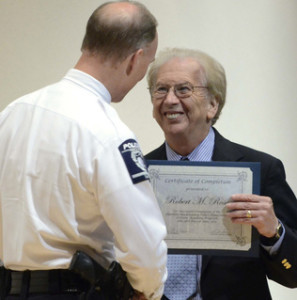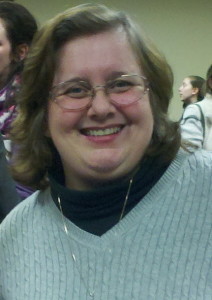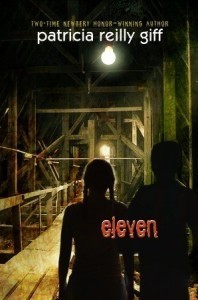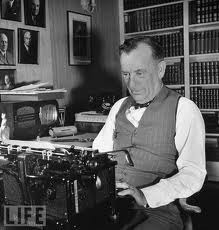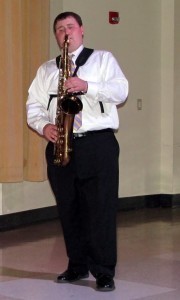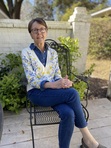Linda Vigen Phillips's Blog, page 12
July 8, 2013
Dyslexia and a Mother’s Intuition
Recently I have featured a few Middle Grade books that present protagonists with learning disabilities who reach a turning point after which we know that life is going to be more manageable going forward. (see Another Struggling Reader in Close to Famous;Eleven: Another Look at a Reading Disorder; CELEBRATING JOEY PIGZA)
So I was intrigued to pick up the Charlotte Observer last week and find an article about Bobby Rose, a 65 year-old gentleman who survived a traumatic birth during which his umbilical cord cut off oxygen to his brain. The article featured Bobby’s accomplishment of graduating from the Charlotte-Mecklenburg Police Department’s Citizens Academy. The program consists of 18 sessions and 50 hours of curriculum that participants have two years to fulfill. Bobby finished in less than a year.
Twenty-nine people graduated from the program, so why was Bobby’s accomplishment worth a feature article? To begin with, his IQ that registers somewhere around 50 (moron) warranted doctors’ recommendations that Bobby be institutionalized early on. But his mother refused to follow the doctors’ orders because of the humor, comprehension and intellect she saw in her son. In spite of a lifelong struggle to read and write beyond a first-grade level, he has led and continues to lead an extraordinary life.
Bobby’s older sister Sharon Powell, who practices psychology in New Jersey, attributes much of Bobby’s resilience and fortitude to his mother, Phyllis Apple. She grew up with undiagnosed dyslexia, and Powell believes overcoming her own struggles gave her courage to believe that her son could do it, too.
He proved her right. At 18 he got his driver’s license after months and months of working with her to memorize the necessary information. He passed the test orally with 100% on the first try. At 21 he married a fellow student from the Nevins Vocational School and they live with their poodle in South Charlotte. He retired two years ago after working forty-three years in linen services for Carolinas Healthcare System.
A lifelong fascination with the police department led to Bobby’s enrollment in the class. “My whole life I wanted to be a policeman, but couldn’t.” His other sister, Susan Marcus said their mother was always honest with him about his limitations, and he has never dwelled on them. ”The family always encouraged his independence and he was never treated differently.”
Bobby said graduating from the Citizens Academy “made me feel like a million bucks.” He will be working with a CMPD volunteer coordinator to talk about the opportunities for service that are now available to him.
In my mind Bobby is a super hero but I think his mother is, too. During her formative years there likely was not the support or the knowledge base to deal adequately with her Dyslexia. As her daughter indicated, she was left to deal with it on her own and in doing so she gained courage and determination that she passed on to her son.
This two-in-one-feel-good-story made my day. I hope it did the same for you, especially parents of children with special needs.
July 1, 2013
Another Struggling Reader in Close to Famous
If you’ve been following this blog you know that I am reviewing books that deal in some way with a character who has a learning disability. Please see previous blogs Eleven: Another Look at a Reading Disorder and CELEBRATING JOEY PIGZA for further reviews. I’m doing this as part of the research for my second book, tentatively titled The Science Project, featuring a middle grade boy with Dyslexia and ADHD.
Joan Bauer earned a Newbery Honor Award for Hope Was Here, a heart-wrenching story of a cast-off teenager who works as a waitress in the diner where her aunt is the cook. Bauer has a gift for delving into the dramas big and small that define the working class struggles in small-town America. In Close to Famous, we meet sixth-grader Foster and her mother Rayka, as they flee Rayka’s abusive relationship with Huck, who likens himself to Elvis.
Foster loves to cook, she’s exceptionally good at it, and cupcakes are her specialty. A food network star is her idol and she dreams of hosting her own program one day. But she has one huge stumbling block that she keeps secret, at least until a couple of astute observers find her out, and that is her inability to read. Bauer slips this in so subtly that you could miss it in the beginning if you aren’t looking for it.
“Mama reads to me a lot. My brain closes up when I open a book. I almost flunked sixth grade because of it. My second grade teacher told Mama I would grow out of it, but it feels more like it’s grown all over me.” (p. 37)
“When I’m famous I’m going to have people around me who do the reading.” (p. 74)
Typically in real life, struggling readers can cruise along using an excellent memory and good guessing skills until a crucial need generates a crisis. Such is the case with Foster. When a newfound friend asks her to help with a documentary project by taking notes for him, Foster’s defenses begin to crumble.
“I’m not stupid, I told myself. There’s all kinds of things I can do. But enough of me must be stupid if I’m twelve years old and I can’t take notes.” (p. 80)
Even more than yearning to write, Foster wants to be able to read a cookbook. Miss Charleena, an aging movie star in seclusion, confronts Foster about her inability to read. After divulging her own struggles in school—“Learning how to read just about split my brain open but it was worth it”—she gains Foster’s trust, and Miss Charleena begins teaching Foster with her own version of phonics one recipe at a time.
Miss Charleena marks a turning point in Foster’s struggle, but not without some false starts, tears, and haunting memories of being called “stupid” by other students, and labeled “limited” by her teachers. One essential ingredient in Foster’s breakthrough is her own attitude and readiness to face the problem head on. “I’m ready to do this now….I’m not going to run away.” (p. 159) The other key ingredient is the awareness that she is not the only one facing a struggle. Her close friendship with a boy who has been taunted by students and teachers for being uncommonly short thrives on the encouragement they lend each other.
Most reviews of this engaging book never mention the reading issue. The book jacket points out the big dreams of the colorful characters who all end up in the tiny town of Culpepper. Rayka hopes to be a headliner instead of a back-up singer, Miss Charleena longs to return to Hollywood stardom, Macon (the short one) yearns to make documentary films, and Foster dreams of having her own TV cooking show.
But I think the understated triumph of cracking the code into the world of reading is the best dream come true in this book. For her efforts Miss Charleena presents Foster with a “reading diploma with honors.” For Foster,it’s just the beginning, and you can’t help but cheer her on with this attitude: “The funniest thing happened with my reading. I started telling people I was working hard at it, and instead of laughing, they said ‘How can we help you?’” (p. 202)
Note to parents of children with a reading disability: Read the book once through by yourself. Laugh, cry, and take a deep breath. And then read it with your child and have an open-ended conversation about the particular set of circumstances you are facing. Who knows? It might spark the beginning of a dream.
June 24, 2013
LEARNING DISABILITIES: THE TEACHER’S PERSPECTIVE
If you’ve followed this blog recently you know that I have been exploring how learning difficulties are portrayed in YA and Middle Grade novels. This week I want to zoom in on a teacher’s perspective by welcoming Lynn Bonner, Reading Specialist at John Crosland School in Charlotte.
Linda: Lynn, what exactly does a Reading Specialist do?
Lynn: I have the privilege of helping students discover the joys of reading independently by applying rules and tools to decode, and strategies for comprehension. We use the Orton-Gillingham method in small groups of approximately three students to read cards, lists, poems, stories, real and nonsense words. We write in the air, and on different textures such as shaving cream, carpet, velvet and sand. Oh yes, we even write on paper! We tap sounds on fingers, bingo chips, and pompoms. We sort, classify, and play word games.
In my Comprehension classes, I use research-based methods to help bring understanding to a variety of printed text. We read aloud and silently, map stories, read, classify, read, sequence, read, summarize, read, paraphrase, read, determine question types, read, link vocabulary, read, draw the big picture of a story, and read… I know you get the big picture.
Linda: I know you’ve been at this for a while. Tell us a little about your educational background and what influenced your career choice.
Lynn: I started teaching full time in Florida public schools in 1978, 35 years ago, after graduating from Mercer University with a concentration in Elementary Education and a minor in Psychology. When I first arrived in Florida, I took several early childhood courses and my favorite Education course, Diagnostic and Corrective Reading, at the University of South Florida. I have always been a voracious reader and loved teaching, but I believed this course, as well as a personal journey with loved ones who struggled with reading, set me on the path of helping struggling readers learn to read.
Linda: What special training have you had beyond your college career that has helped sharpen your teaching experience?
Lynn: I have had many years of special programs and, of course, on the job training which is the best training of all. Staff development classes, a large variety of conferences, five Project Read Certificates, a Teaching Diverse Learners Certificate, SRA Corrective Reading and Wilson Reading Systems training, and University of Kansas SIMS training in comprehension have all sharpened my skills. But I would consider my Orton – Gillingham training to be the most beneficial because it helps me give my students the keys to unlock the mysteries of reading at the basic level of decoding. In a nutshell, it is a diagnostic, prescriptive, repetitive, multi-sensory, and systematic approach to teaching phonics. I see it work daily, and the students have fun and experience success.
Linda: Describe the most challenging situation you face in working with the learning disabled population.
Lynn: That has to be when students enter the school feeling defeated, maybe after years of not being able to read like their classmates. The key is getting these students reading quickly so they can experience success. Correcting a mistake can cause pain, so the challenge is to build as much success into the lesson as possible while presenting new information in a fun, painless way. Reading and writing by themselves is the biggest confidence booster.
Linda: And I know there are wonderful, rewarding experiences when you feel that special connection or particular success with a student.
Lynn: I feel that it is my duty and privilege to develop a special connection with each of my students. It is easiest to learn from someone who cares about you, your needs and wants, your interests, and your successes. On the flip side, it is easiest for me to teach when I know each student. Just getting to know each of my students and watching them grow and succeed is the greatest reward and joy for me.
Linda: What do you think are the essential ingredients in the recipe for success for a “typical” student with a learning disability?
Lynn: First, the teacher must have the knowledge and motivational tools to reach out and teach that individual student. Then, the student must take that first step and accept what is being offered. The recipe’s directions are as simple and difficult as that. Presenting material to be learned in a multi-sensory way by using the auditory, visual, tactile, and kinesthetic channels is a key ingredient. Understanding the child’s motivations, strengths and weaknesses is another. The ingredients mix together perfectly when the student understands that the teacher cares and that he/she can experience success. To extend the metaphor, the cake rises!
Linda: What have you observed about creativity in students with learning disabilities? Do they tend to be more or less creative than the general population and if more, in what ways (art, music, other?)
Lynn: I truly feel that every child has gifts. Sometimes the gift is their unique combination of abilities. Yes, I have seen phenomenal artistic abilities in our learning disabled population. Our school emphasizes the technologies and the arts for a reason. I fully expect some of my very talented visual artists to have their works displayed in art galleries or in books one day for all to see. The music concerts and plays at our school are great. The middle school students wrote original compositions this year, and several creative students tell me about books that they are writing. Some students like to make inventions to solve problems. My students don’t always “think inside the box or color between the lines.” What impresses me the most about our population is each student’s individual medley. They often have to work harder and longer, and they usually have the energy to do so. This work ethic develops perseverance, tenacity, and creativity that usually leads to success in their chosen field.
Linda: How has technology figured into the formula for success in teaching learning disabled students in recent years?
Lynn: These students are children of technology. They have fun games that they can turn to for reinforcement on personal computers through our school’s website. They participate in Smart Board interactive lessons. We have Thinking Reader programs that read aloud to students and ask questions along the way. Children with dysgraphia have greatly benefitted from drag and speak technology that will type what they say into the computer. Just basic keyboarding with spell check has been a help. That being said, one of the founders of Orton said something to the effect that a good Orton teacher should be able to teach with nothing but a stick and some sand. Assistive and adaptive technologies are very important, but I feel that it needs to be paired with an instructor who knows the needs and wants of the student.
Linda: Lynn, it sounds like you love what you are doing. What would you say is the most satisfying part of your job:
Lynn: It is absolutely getting to know each of my students and sharing in their joys and successes.
Linda: If you could wave a magic wand in your particular job or maybe your field in general, what would you wish for?
Lynn: It might be nice to say that I would wish to take away the students’ reading difficulties, struggles and problems, but I don’t think I would. It might be a detriment to take away the very thing that prepares them for their greatness. One of my family members with dyslexia and dysgraphia said that she is grateful for the road that she has traveled. It has made her stronger in a variety of ways. She became a top student with a graduate degree who loves to read and adores technology. She is highly respected in her professional field. My students are wonderful just as they are! They just learn differently. I do wish for all my students to have happiness and the understanding and respect that they so richly deserve. Of course, I always wish for more books so that we can all keep on reading! A big thank you to you, Linda, for writing books for us to read!
Linda: The feeling is mutual, Lynn. Where would we be without dedicated teachers like you? Thanks for sharing your wisdom with us today.
June 17, 2013
Eleven: Another Look at a Reading Disorder
In my continuing effort to discern how learning differences have been featured in literature, I enjoyed reading Patricia Reilly Giff’s book, Eleven. Sam is just turning eleven and can barely read. As he puts it, “words look like spiders flexing their thin legs as they move across the page.”
Giff, a two-time Newbery Honor-winning author, deftly portrays in Sam both the heartaches and the triumphs that children with learning differences might typically encounter. Sam has strong emotions about his struggle with reading. He hates the stigma of going to the Resource Room every day and often gets in trouble for dawdling in the hall until he is late. He feels embarrassed that the other kids in the class are aware of where he is going and why. His reading difficulty becomes urgent when he discovers a box in the attic with a picture of himself at the age of three with a different last name, and the only word in the caption he is able to read is “missing.” Suddenly Sam’s identity is in question. Is Mack really his grandfather, or has Sam been kidnapped?
Sam knows he is going to need help reading the rest of the article, and when a book-loving new girl, Caroline, teams up with him to build a castle for a class project, Sam enlists her help. Mack, the man who Sam thinks is his grandfather, has taught him how to make things from wood and Sam seems to have developed a natural affinity for woodworking. “You read the wood,” Mack said, “and that’s something almost no one else can do.” When he is creating something in the workshop, Sam is relaxed and self-confident.
In the process of trying to figure out the mystery to Sam’s past, a lovely friendship is forged between Sam and Caroline. The instability of the itinerant life of her artist parents contrasts with the family life that Sam has with Mack and the two supportive neighbors who have helped raise him. Caroline is able to stay long enough to help Sam discover that Mack is, indeed, his real grandfather.
Triumph comes for Sam when Caroline insists he learn how to read so they can continue their friendship via email after she leaves. That coupled with the genuine awe both teachers and students have over the castle he created boost Sam’s self esteem to the point that he announces to his Resource teacher, “I have to read.” And you know that with that kind of determination, it is only a matter of time.
This is a story that will be meaningful to reluctant boy readers as well as girls, especially those who love to read and find meaning in helping others. It would also make a delightful classroom read, with good examples of friendship, patience, and the development of ones own talents and skills through persistence and hard work.
As a writer and a former teacher of learning disabled students, I appreciated how Giff demonstrated Sam’s honest frustration and discouragement, and the positive effects that the support of just one person, in this case his friend Caroline, had on his self-esteem and determination. I believe a crowning achievement of this book is Sam’s gifted ability to work with wood. It has been my observation that students with learning disabilities often possess some form of creative ability, whether it be music, art, dance, athletics, or in this case, woodworking.
June 10, 2013
POETRY THERAPY
My debut novel originated from poems that were written as a catharsis, my own peculiar way of healing years of unanswered questions and unresolved angst over my mother’s mental illness. In my teaching years, I saw some of the best student poetry emanate out of some of the worst socio-economic and personal home lives you can imagine. My friend Carol Baldwin writes poetry when she gets stuck on her WIP, particularly when she needs to go deep into the emotions of a particular character. My point is, poetry can be very therapeutic, good for your mental health, and yes, even good for your writing.
Many people are hung up on the formality of what they think poetry is or should be. Take it from me. I have no formal poetry writing credentials to offer, but I know that deep down in my heart and or my gut there lies some emotion that can only be expressed in a rolling, unrhymed free form that I call poetry.
Recently I know too many friends or family members who are seriously ill. Some have already died. It happens to all of us. There is only one way I can truly get to the bottom of my depth of despair, and that is through poetry. It soothes me, and heals me, and clarifies the way forward.
I wrote this last summer, angered by the death march of a dear friend.
SUGAR CREEK RIDE
A rare July morn in Charlotte
fooled by blankets of grey clouds
or global mistakes into offering
cool mid-summer oxygen,
it can make you giddy
as in remission.
I long for a glimpse of the grey-blue heron
sailing down the black-water creek
more grey, the heron
than blue, more hidden
this morning, than not,
hidden like Jeanne’s killer.
The illusive vicious murderer
remains at large. It left
a Hansel and Gretel trail,
booby-trapped a network of intricate paths,
death traps disguised.
Specialists called in,
now hopelessly dismissed.
A splash of yellow flits across my path.
I swerve, as if old ladies on wobbling bikes
can mow down a young Oriole
on a July morning.
Would it be justice served,
a tumble-down spill into murky, tepid waters
for an old lady who’s dodged bullets
all these long years?
Is death by a meandering creek
any more just than an army of insidious cells
marching in rampant and unstoppable syncopation
through an innocent body?
Obviously the sleepy creek has better
things to do today, while a hell-bent sun
pronounces death to the wispy, cool morning.
I work up a sweat peddling back home,
embarrassed by the small price I pay
for these aging breaths,
the breaths I keep stealing
all the way home.
June 3, 2013
CELEBRATING JOEY PIGZA
I’ve taught middle grade students with ADHD and I’m working on a book whose protagonist has it, so of course I am reading all the fiction and nonfiction I can get my hands on that pertain to this subject. At the bottom of this post I have listed a few books that deal with ADHD and/or Dyslexia, but my hands-down favorite character is Joey Pigza, depicted in four outstanding books by award-winning author, Jack Gantos.
In his first book on the subject, Joey Pigza Swallowed the Key, Gantos creates a painfully realistic, if not slightly exaggerated, pre-pubescent boy in the out-of-control grip of ADHD. Gantos doesn’t miss a beat portraying the multi-layered factors that are known to set such students up for failure. Joey’s grandmother appears to have passed the ailment on to her son who fled the scene early in Joey’s life and purportedly spends his time self-medicating with alcohol. Joey’s mother returns after a similar absence in his life and is forced to face her own battle with alcohol when Joey parrots what he is learning in school about moms who drink during pregnancy.
At school Joey is left to fend for himself. As he put it, “they say I’m wired bad, or wired mad, or wired sad, or wired glad, depending on my mood and what teacher has ended up with me. But there is no doubt about it, I’m wired.” The mounting list of infractions that Joey incurs at school is indeed painful. Countless time-outs in the hall, an attempt to sharpen his fingernail in the pencil sharpener, swallowing his key not once, but a second time after it has passed through with the help of cod liver oil, earn Joey numerous visits to the “special-ed” classroom downstairs. But as the list grows, Gantos makes sure we see the redeeming qualities of compassion and empathy that make Joey likable even to the most frazzled teachers who shudder to hear his signature response, “Can I get back to you on that?” one more time.
Gantos nailed two traits that children with ADHD usually have. They know when their meds have timed out and they have a genuine desire to please others. That’s what was happening on Joey’s worst day, when a series of events led to an accident in which he tripped with a pair of sharp scissors and seriously injured the face of a fellow student. It resulted in suspension and a mandatory six-week stay at a special school where, as luck would have it, Joey finally got proper testing, a meds patch that worked, and a life-changing second chance.
Gantos has created one of the most poignant and realistic depictions of a young person dealing with ADHD that I have read. You can check his web site in the link above to pick up Joey’s story in the other three books in this series.
Following is a random listing of some of the other great books for kids in which the main character struggles with some form of learning disability (ADHD and/or Dyslexia):
I Wish I Could Fly Like a Bird! by Katherine Denison
Eddie Enough! by Debbie Zimmett
We Can Do It! by Laura Dwight
Thank You Mr. Falker, by Patricia Polacco
The Hank Zipzer Collection (14 book series) by Lin Oliver and Henry Winkler
Eleven by Patricia Riley Giff
Close to Famous by Joan Bauer
The Lightning Thief and others is the series by Rick Riordan
Trapped by Judy Spurr
Author by Helen Lester
Tacky the Penguin by Helen Lester
The Alphabet War: A Story About Dyslexia by Diane Burton Robb and Gail Piazza
My Name is Brain by Jeanne Betancourt
Two-Minute Drill: Mike Lupica’s Comeback Kids by Mike Lupica
May 27, 2013
A BIRD AND A BAD DAY
I’m currently stuck. No, not the kind that requires a generous dose of Phillips Milk of Magnesia. The other kind, better known in these circles as writer’s block. Since one of the symptoms of this dreadful scourge is a wandering mind, I have been wasting precious writing hours fixating on the poem and the poet that probably started me off on this writing adventure in the first place.
Let me explain (since I’m in no hurry to get back to the grind). My father loved poetry, and he was particularly partial to Edgar Guest. Never heard of him? Me neither, until one day in the fourth grade I was required to choose a poem to memorize and present before the class. I went straight to Daddy who readily pulled out a tattered copy of “A Bird and a Bad Day” clipped from the Detroit Free Press. It seems he and my mom exchanged these poems back and forth during the three years they were separated by my father’s World War II duties.
Daddy coached me through the excruciating experience of prepping for the oral presentation. (To this day I break out in a rash and a cold sweat but that’s another story.) And to this day, I can recite most of that poem on demand. (Teachers take note).
Now about Edgar Guest. He was called “The People’s Poet,” was the one and only Poet Laureate Michigan ever had, was often quoted by Edith Bunker from “All in the Family,” and was totally derided and mocked by other big names such as Lemony Snicket and Dorothy Parker. I think you get the picture.
But here’s the important part. Something in his schmaltzy sentimentality spoke to my parents’ hearts, which trickled down to me, and in fact, is speaking to me now in my “stuck” predicament.
Isn’t that, after all, what poetry is really about? I rest my case, and here follows “A Bird and a Bad Day.”
A BIRD AND A BAD DAY
Nothing to write about, nothing to say
And a printer shouting for copy today.
“Get busy, he wires, “you’re overdue now.
We must have your verses tomorrow somehow.”
So I sit at my desk and I twiddle my thumbs.
But the morning departs and a thought never comes.
Just out of my window a bird on a tree
Is singing a glorious lyric for me.
It may be an old tune, it may be a new.
But I wonder the while I am hearing him through.
Is that brave little fellow full pleased with his lot?
Does he, too, have to sing when he’d much rather not?
So sweet is his music, so liquid each note
Which comes with delight from his marvelous throat.
I wonder at times if he’d rather keep still
Than capture my ear with a rapturous trill?
Can a bird ever know such a soul-racking thing
As an order for song and have nothing to sing?
Oh! brave little fellow, I’ll struggle somehow
To get out that copy for Wednesday right now.
You were fashioned for singing, and though it may irk,
You sing with a brave heart because it’s your work.
My thanks for this lesson your courage has taught,
And also my thanks for suggesting this thought.
Edgar Guest, 1927
Detroit Free Press
May 20, 2013
SUCCESS STORY
The protagonist of my second book, tentatively called THE SCIENCE PROJECT, has ADHD and Dyslexia, and so do approximately 15 to 35 million Americans, including Andy Kropp. Andy’s is a success story, and I am delighted to share it with you here.
Andy’s learning difficulties began surfacing in second grade when he found it increasingly hard to complete his work on time or to keep up with the rest of the class. ”I started realizing I was the only one in the class who never got recess, because I had to stay in and finish the math.” But it wasn’t just math as Andy exclaims, “Reading was the worst.” Thanks to the encouragement and observations of one very caring teacher, Karol Matthews, Andy’s parents took him for testing. The tests showed that he has an attention percentage of 4%, along with dyspraxia (impairment or immaturity of the organization of movement) and dysphasia (language disorder).
Things went from bad to worse in the third grade, where his teacher actually called him stupid. Andy felt that she purposefully targeted him with difficult words in the classroom spelling bee, which he remembers as one of the most torturous events of his schooling. He chuckles as he recalls saying to himself, “why is this old hag bothering me about this?” But at the time, he often went home in tears, asking his mother why he was so stupid. At that point, Andy’s parents pulled him out of school and began homeschooling where he remained, along with his brother who also has ADHD, all the way through high school.
Andy credits Dr. Carolyn Hart of Mecklenburg Neurological for changing his life forever. She told him “you will succeed but you may have to do it differently and with a good secretary, but you will succeed.” Andy hung onto those words throughout his schooling. Another positive experience happened at Creating Avenues for Learning where he went every day for an intensive four months of reading retraining to make new pathways in his brain.
Andy is a classic example of one who has learned to compensate for the hand that he has been dealt. He knew early on that he would never “get over” his learning differences and as he says even now, “It’s a struggle with me every day.” When I asked him to talk about some of the quirks or pitfalls of his circumstances, he eagerly listed them off: he didn’t tie his shows or button his shirt until he was 10; he has a penchant for cracking knuckles, whistling, snapping fingers, sitting on his hands, breaking pencils, and stretching his hands and fingers repeatedly. He says his girlfriend and her parents are working on understanding why he doesn’t look them in the eye when he’s speaking to them. ”It’s simple,” he says. ”Looking at them totally absorbs me, to the point that I don’t listen and I lose the train of thought. I tell myself to look at her when my girlfriend is talking. And when she thinks I’m staring at someone, I assure her that I’m looking off into space the better to listen to her.”
Academically Andy has nailed it. A recent graduate of East Carolina University with a Bachelors in Music Performance on the Saxophone (remember his diagnosis of dyspraxia?), he is headed for the University of Northern Colorado with the long range goal of a Doctor of Music so that he can teach at the collegiate level.
How did he get this far? These are some of his tricks: loads and loads of flashcards for hard words to spell; breaking up 8 hours of practice with Netflix going on in the background (go figure); wearing a bracelet on the left wrist as a reminder of left and right; tying a string on left foot to know which foot steps off in marching band; drinking lots of caffeine before a performance; sticky notes everywhere; audible reminders on phone; developing a folder on his computer for files he needs to access; asking his girlfriend to read text to him; using a hand held recorder for note-taking; and relying on an almost perfect photographic memory.
When I asked Andy if he had advice for anyone facing similar learning differences he said, “find what works for you and don’t stop doing it.” It’s obvious that Andy was blessed with a strong support network of family and friends. But equally as obvious is the downright hard work that he has put in himself to get where he is today.
Kudos to you, Andy, and to all those like you who get around learning issues a “different” way until they achieve success.
[image error]
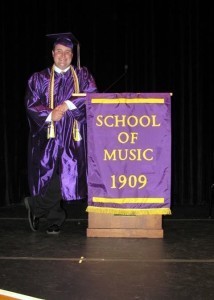
May 13, 2013
MEET MY AGENT, JULIA KENNY!
Two-and-a-half years ago I queried agent Julia Kenny after reading an interview of her on another blog. In that interview she said she was looking for ”beautiful writing, fully developed characters, and a storyline that keeps you reading.” I was so relieved that she hadn’t mentioned the words dystopian, fantasy, paranormal, or futuristic (because my work is none of the above) that I audaciously sent her my manuscript. Of course it was a thrill of a lifetime to receive that magical phone call from Julia, saying that she wanted to take on my manuscript.
Equally thrilling for me was a trip to NYC recently when I got to meet Julia in person. It is my pleasure to introduce her to you here and to share part of the conversation we had over coffee.
Linda: We writers are always interested in how an agent becomes an agent. Share with us the twists and turns that led to your career.
Julia: I attended Sarah Lawrence College, where my concentration was fiction writing. One of my professors set up an internship for me with her agent, Wendy Weil. I ended up staying on for quite a while during school, and when I moved to New York City, after graduation, they brought me on as a reader. I ended up joining the Elaine Markson Literary Agency, which eventually became Markson Thoma, where I worked for nearly 10 years as an agent, and the director of foreign rights. As a writer, it was fascinating – and sometimes terrifying – to get a behind-the-scenes look at the publishing industry. Before I worked at an agency, I had a pretty glamorous view of the life of a writer, but seeing how incredibly difficult getting published can be was truly eye opening.
Linda: You’ve recently joined Dunow, Carlson, and Lerner Literary Agency after ten years with Markson Thoma. Talk about your focus at Markson, some highlights of that position, and how it compares to your new role.
Julia: At Markson Thoma, I wore many hats. I was an agent and I handled foreign rights for the agency. At DCL, I will be focused solely on agenting, which is quite exciting.
Linda: All authors reading this want to know what type of work you will be looking for and accepting going forward.
Julia: I am especially interested in fiction for all ages (with the exception of picture books which feel like a whole different world to me). These days I’ve taken a special interest in the dark stuff – I’ve found myself drawn to suspense and thrillers lately. I’m also interested in non-fiction, including memoir and lifestyle projects. Email is the best way to reach me, including a pitch letter and a few sample chapters. (julia@dclagency.com)
Linda: What about your own writing? Is it on the back burner with all your responsibilities, or something you still want to pursue.
Julia: My writing has definitely been put on the backburner, though I toy with the idea of diving back in from time to time. I’ve got an idea or two for middle grade and young adult novels floating around in my mind, and hopefully, someday, I’ll have the time (and will power) to sit down and get to work!
Linda: What’s the best advice you can give an aspiring author of young adult and/or middle grade work in today’s market?
Julia: I think it’s very important for aspiring writers to read, read, read! The middle grade and young adult markets are about the fastest growing in publishing, and I think it’s important to keep an eye on what’s selling. I’m excited that the trend lately is towards realistic fiction. As much as I love a great fantasy, sci-fi or dystopian novel, for me, there is nothing more thrilling than finding a novel that transports me to another world – but a world that closely resembles my own and often teaches me something about other people and their experiences.
Linda: How important is it for writers to have an agent in today’s publishing world?
Julia: Publishing is an ever changing industry and to have someone who understands it is invaluable. While there are exceptions to every rule, I do think that it’s important for authors to have literary agents advocating for them, both in business related matters and editorially.
Linda: Thank you, Julia, for sharing your thoughts with us today and we wish you every success in your new position. And to anyone reading this interview, I can say without a doubt that if you are one who gets that magical phone call from Julia you will be blessed by her diligent, patient, and professional advocacy.
April 26, 2013
WEBSITE ADVENTURE
I’ve taken the last several weeks off from “writing” which is not to say I have been sleeping late and sitting around eating bon-bons. To the contrary, I’ve been burning the midnight oil, stretching all my ancient brain cells around the new learning curve of creating a website.
What an adventure.
First, I purchased Jane Friedman’s Writer’s Digest webinar, Create an Author Website in 24 Hours or Less and I watched it multiple times. It was indeed very helpful, but as I said, these are ancient brain cells we’re dealing with, and I still had lots of questions. The best thing about the webinar was Friedman’s unwavering endorsement of WordPress. When I searched in that direction I stumbled on Tyler Moore‘s youtube tutorial How To Make a WordPress Website – AMAZING! and I felt like I finally had the details I would need at least to get started. This guy IS amazing. His business name is Conutant and he has many youtube videos out there that give step-by-step help on the whole picture and all its individual parts. (And no, he didn’t pay me to give him this plug).
I literally split my screen and went back and forth (many times) between the instructions and my page. After an inestimable number of bungling fits and starts I had a shell of a website, but seriously lacking in bells and whistles. I decided it was time to seek “professional” help to put the finishing touches on. I cringed at what this might cost, but was pleasantly surprised with the feedback I began getting, like “wow, you’ve done most of the work yourself” or “you’ve saved yourself lots of money.”
Keep stroking those old brain cells, guys!
After interviewing several companies, I settled on BCV Publishing. The fact that they are literally around the corner from me in Charlotte was a big plus. Somehow in this daunting process it gives me comfort to know that if my web site and/or I come down with a bad case of “what do I do now?” we could bundle up and go in for an office visit. I know in this digital age that sounds crazy, but hey, this whole web adventure is slightly crazy for ancient mariners like me anyway.
Long story short, if you’re reading this you can judge the final product for yourself. And I DO invite comments and observations because with my newly acquired brain cells and a CMS (Content Management System) I will be able to make most changes without consulting a webmaster.
Now that we’ve reconnected, I hope you’ll come along for the ride.

